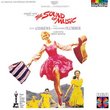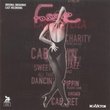| All Artists: Mahler, Wagner, Klemperer, Pao Title: Symphony 9 / Siegfried Idyll Members Wishing: 0 Total Copies: 0 Label: Angel Records Release Date: 6/8/1999 Album Type: Original recording remastered Genre: Classical Styles: Historical Periods, Modern, 20th, & 21st Century, Symphonies Number of Discs: 2 SwapaCD Credits: 2 UPC: 724356703629 |
Search - Mahler, Wagner, Klemperer :: Symphony 9 / Siegfried Idyll
 | Mahler, Wagner, Klemperer Symphony 9 / Siegfried Idyll Genre: Classical
Otto Klemperer's Mahler is invariably dry-eyed, yet urgent, a valuable corrective to the number of latter-day interpreters who would either self-indulgently wallow in the music's sentiment or, even worse, treat it as pure ... more » |
Larger Image |
CD DetailsSynopsis
Amazon.com Otto Klemperer's Mahler is invariably dry-eyed, yet urgent, a valuable corrective to the number of latter-day interpreters who would either self-indulgently wallow in the music's sentiment or, even worse, treat it as pure sonic architecture, as though it were pre-Schoenberg. If this 1967 reading of the Ninth sounds slightly detached by modern standards, if its expressive points seem slightly understated, it is nevertheless deeply engaged and masterfully controlled. Klemperer was beginning to slow down by this point in his career, and the tempos are just a hair on the slow side, especially in the two middle movements. But the old firmness of conception and rocklike steadiness are still there, even in the stormy weather of the Rondo-Burleske. The recording, made in Kingsway Hall, finds the New Philharmonia Orchestra in good form, though some of the wind soloists are a bit taxed by Mahler's exceptional demands. Two discs are necessary for the account, so to fill them out EMI gives us Klemperer's readings of Wagner's Siegfried Idyll and Strauss's Metamorphosen, both with the "old" Philharmonia Orchestra, both from 1961. Klemperer does the Siegfried Idyll with solo strings, the way it was written, and absolutely beautifully. There is a nobility and a sense of gravity to his reading of the Strauss that makes the piece deeply compelling without seeming in the slightest degree overwrought; the Philharmonia strings play it superbly. Surely this is the way Strauss intended the music to be heard. --Ted Libbey Similarly Requested CDs
|
CD ReviewsA Masterpiece in Every Sense Joel Rafi Zabor | Brooklyn, NY United States | 07/24/2004 (5 out of 5 stars) "I only have a brief note to add to this discussion. There may be superior performances of individual movements of the Mahler Ninth-Tennstedt's first movement, Horenstein's last movement-but for a wholly conceived, front-to-back performance of this masterpiece, I have come to feel, after many years, that Klemperer's is the best that has been recorded. (This was written before the release of Jascha Horenstein's BBC Ninth, which has taken first place for me, but let my words stand: this is a great interpretation.) It is also, I think, a deeply mysterious performance. To go no further into Mahler and Klemperer's highly bipolar psychologies, it may be enough to point out that while Klemperer reins in Mahler's most extreme expressive gestures-and Mahler is nowhere more deeply and intimately extreme, I believe, than in the Ninth-he yet achieves a performance that is more inclusive of Mahler's essential artistic-spiritual-expressive thrust than any other on record. How or why this is possible must probably remain a mystery, but it is one worth listening to again and again. There are more famous recordings of this symphony out there, certainly, but they sound slightly ridiculous in comparison with Klemperer's towering achievement on these discs. The Metamorphosen is on the same exalted level of conception and execution, and, you know, the Wagner's not too shabby either." Stoically moving Paul Bubny | Maplewood, NJ United States | 11/17/2004 (5 out of 5 stars) "The contrast between the valedictory recordings of Mahler's valedictory Ninth Symphony by Bruno Walter and Otto Klemperer--both of whom were Mahler proteges as young men, and both in their 80s when they recorded this work in stereo--probably has to do with the differences between the men themselves as well as the differences in how each perceived this score. Walter has Mahler bid farewell to life with serenity and confidence in what is to come. Klemperer's account is sterner, more sardonic--and when we get to the final pages, the sense of leave-taking is more ambivalent even as a hard-won acceptance breaks through. The "victory" is all the more moving for having been achieved through stoic struggle. There are other ways to play Mahler's Ninth than Honest Otto's dry-eyed integrity admits, but few if any achieve the craggy heights of this performance. The slowish tempi in the two middle movements take some getting used to, yet they fit in with Klemperer's overall conception and emphasize the bitter humor. For me, what sets the seal on this release is that the Ninth is the centerpiece of a 2-CD program that begins with Austro-Germanic Late Romanticism in full flower (Wagner's "Siegfried Idyll") and ends with its utter dissolution as the culture that gave rise to it lays in ruins (Strauss' "Metamorphosen"). The performances of these shorter works are on the same level as that of the Ninth." Otto can conduct Baker Sefton Peeples | Santa Cruz, CA United States | 09/29/2001 (5 out of 5 stars) "for the amount of money you pay, one gets a lot of music entirely worth listening to. When i bought this and listened to this for the first time, i remember the times when i hated this recording, but now i find klemperer's mahler 9 to be my favorite.
I find it hard to imagine a more graceful or easy going beginning to the first movement: a lone heartbeat that sets the tone. It doesn't stay easy going for long as klemp captures the sharply changing moods of this movement by texture, dynamics, articulation, and shading of orchestral colors, rather than vast tempo changes or fluctuations, though this long movement doesn't merely plod along either, he stops to observe the flowers also. the climax is particularly shattering. the easy going feeling resumes after that, however. the second movement is bouyant and jaunty, longer than any other recording, though with plenty of bounce and spring. I love this movement. the third is plenty weighty and slow, slower by a few minutes when compared to other recordings, but klemp as usual brings out the counterpoint particularly well here and it is cleanly played as well. The second part of this movement is what i treasure the most, however. this i could listen to forever, it is the epitome of entering heaven, the most serenely beautiful and well-shaped i've ever heard. the ending is like a slap in the face. the fourth movement is a kind of farewell to life, as well as the symphony is concerned. Rather than a brash and tough farewell, klemperer's makes it more welcomed and more painful cumulatively. Much time has past by the time this symphony is over, but it is an overwhelming experience that needs to be heard to be believed. Buy it before its gone! the siegfried-idyll (played in the rarely heard chamber version, which wagner originally wrote it for) displays what wagner had planned out. the struass metamorphosen has always been a confounding and perplezing piece, and klemperer makes it appropriately mesmerizing and puzzling." |

 Track Listings (3) - Disc #1
Track Listings (3) - Disc #1







